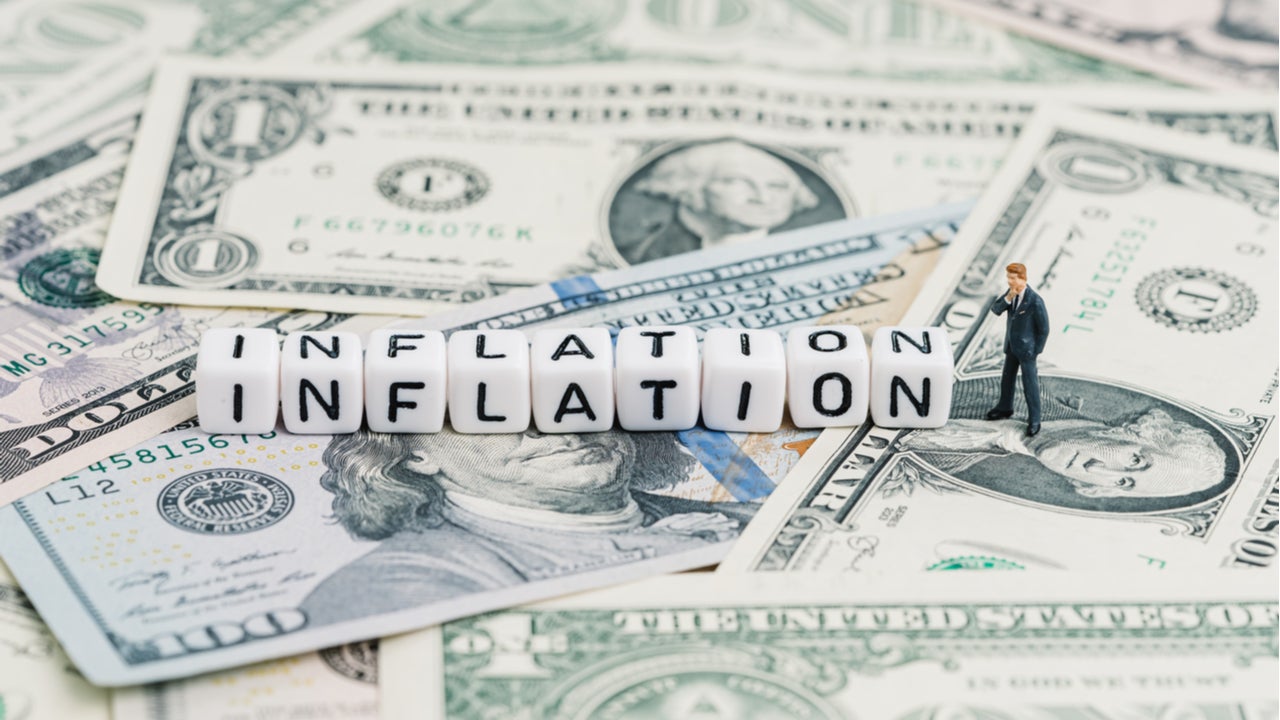Rising inflation in the US has drawn the attention of experts and economists across the world. Many have raised concerns in respect of overheating. However, some note that the economy is on the path to recovery and inflation is in line with the Federal Reserve’s targets.
Brad DeLncerong
Brad DeLong, professor of economics at the University of California, shared an article on concerns over inflation in the US. The US economy grew at an annualised rate of 4.3% in the fourth quarter and 6.4% in the first quarter of this year, indicating that it is on track to recovery. The economy is expected to return to pre-pandemic levels by the third of fourth quarter of the year.
Core inflation excluding food and energy prices also rose by 0.4 percentage points in line with the GDP growth over the past month. The core inflation rate over the past 12 months was 2.3%, which is in line with the US Federal Reserve’s target of 2%-2.5% and is expected to remain around the target.
Further, the US economy is emerging from the pandemic leading to an altered inter-sectoral balance. For example, expenditure on durable goods accounts is 1.7 percentage points above 2019 levels, similarly housing construction in 0.5 percentage points above 2019 levels. However, consumer spending on energy and services was 0.5 points and 2.2 points below 2019 levels, respectively.
The sectoral dynamics are expected to play a key role in inflation even as 4% of workers are expected to move to new jobs in different sectors by the end of the year. The impact of this reshuffling on inflation remains uncertain but a rise in inflation is not a major concern as price increases are an essential part of rebalancing the economy.
SKIDMARKS ARE NOT A BLOWOUT!
 GlobalData Strategic Intelligence
GlobalData Strategic IntelligenceUS Tariffs are shifting - will you react or anticipate?
Don’t let policy changes catch you off guard. Stay proactive with real-time data and expert analysis.
By GlobalDataMy latest for @ProSyn:https://t.co/8QsgLfnMol
Yes, þere will be some inflation þis year. No, þt is not a problem. Jay Powell is avoiding þe big mistake of Ben Bernanke—þe belief þt þe accelerationist Phillips Curve guaranteed þt what you lose in 1/— Brad DeLong: 'Live long, & prosper!' (@delong) May 4, 2021
Klaus F. Zimmermann
Klaus F. Zimmermann, labour and migration economist, shared a study on the impact of Covid-19 on the labour market in Europe. The Covid-19 pandemic led to an average GDP decline of 6.1% across the members countries of the European Union (EU). The labour market usually follows the patterns of the GDP going by the data from previous crises.
Companies often resort to keeping their workforces at the same level despite reduction in demand for goods and services during times of crises. The impact of the economic crisis triggered by the Covid-19 pandemic on the labour market, however, remains uncertain.
The study examined the impact of the pandemic by two measures including the percentage of unemployed people between the age group of 25 and 64 and the percentage of inactive persons. Countries from Southern Europe recorded increases in inactivity as per the study, while higher unemployment was recorded in the Baltic States. Further, unemployment and inactivity remained stable in other countries despite the impact of the pandemic.
What shifts did covid-19 year 2020 bring to the labour market in Europe? https://t.co/0heaz7w62k
— Klaus F. Zimmermann (@kfzimmermann) May 4, 2021
Howard Archer
Howard Archer, chief economic advisor to EY ITEM Club, a non-governmental economic forecasting group, shared an article on the strong rebound in the UK’s housing market since the first coronavirus lockdown after finance minister Rishi Sunak announced tax cuts for property purchases.
The tax cuts include the first £500,000 ($693,928) of any property purchase in England or Northern Ireland being exempt from stamp duty until June. Further, a £250,000 ($346,964) tax-free allowance will be provided until the end of September.
Mortgage borrowing increased by £11.8bn ($16.4bn) in March, which is the biggest increase since April 1993, according to the Bank of England (BoE). House prices in the country also increased by 2.1% in April, the biggest monthly rise witnessed in more than 17 years, as per data from Mortgage lender Nationwide.
https://twitter.com/HowardArcherUK/status/1389525753264496643




